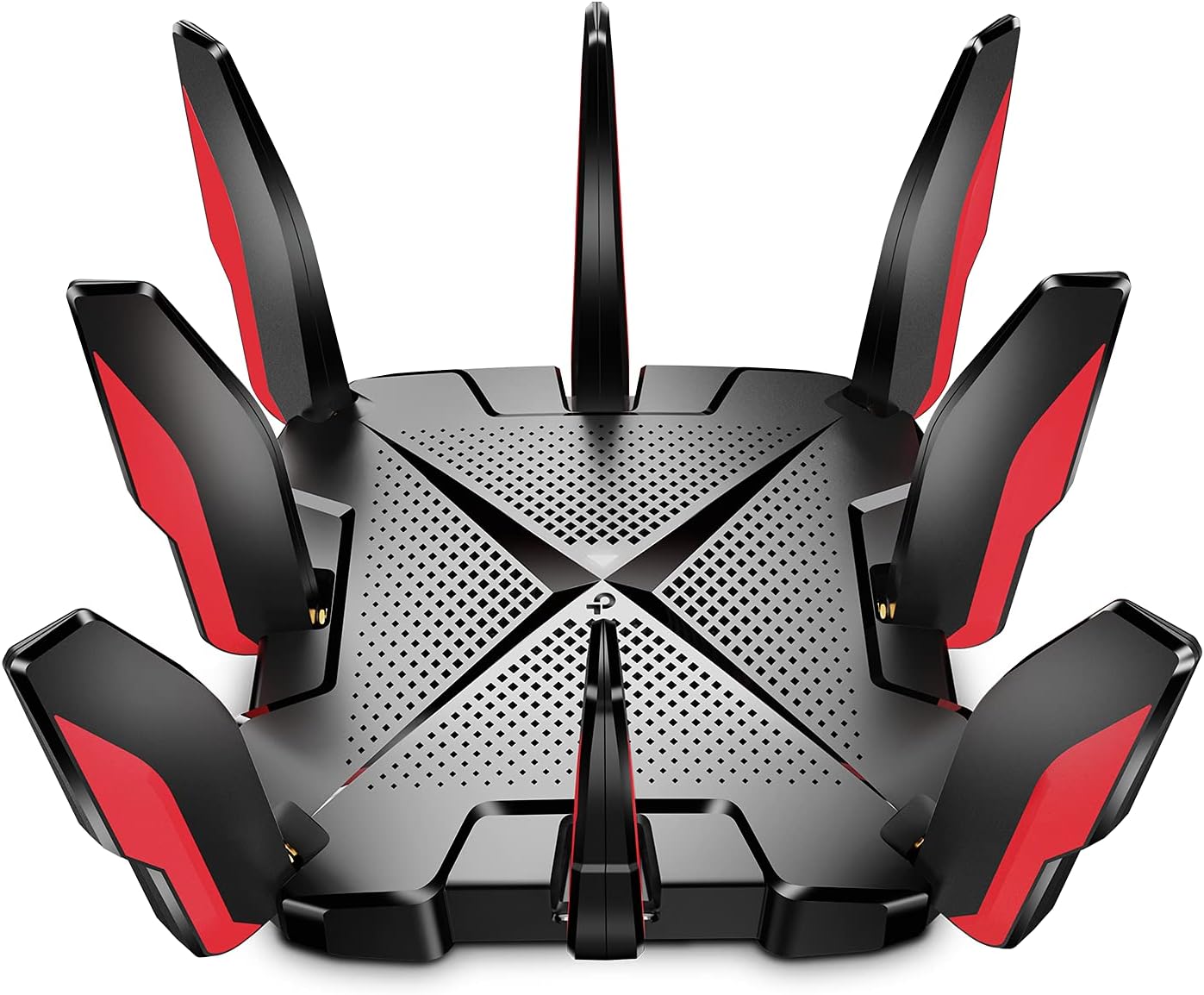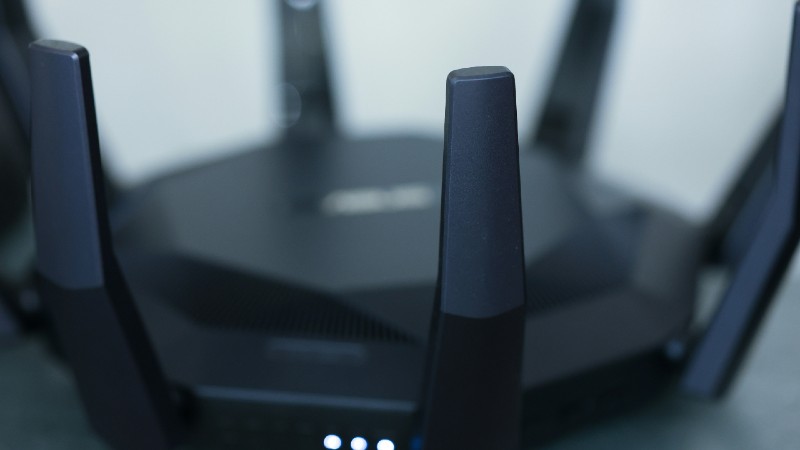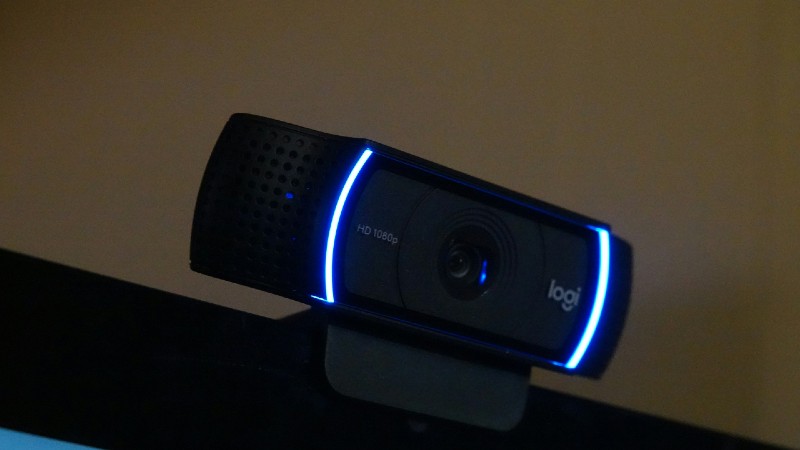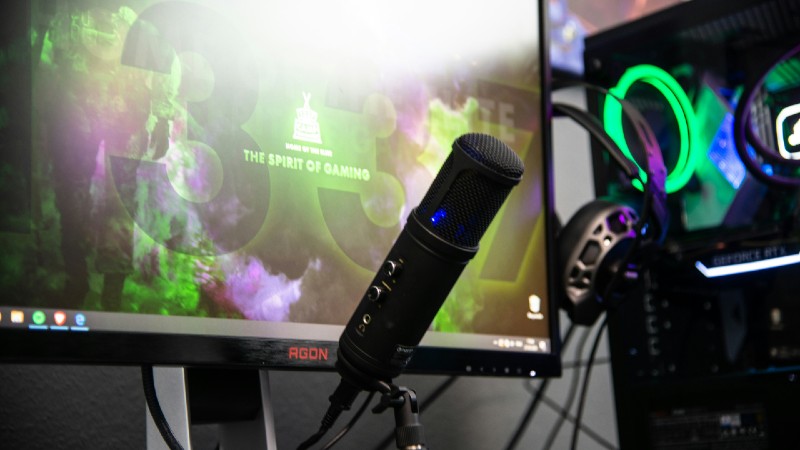Disclosure: As an Amazon Associate, we earn from qualifying purchases. This post contains affiliate links. Our reviews are based on extensive research, including customer feedback and specs, though we haven’t tested every product listed.
In the fast-paced world of online gaming, a reliable and high-performance router can make the difference between victory and defeat. With the rise of cloud gaming, competitive multiplayer titles, and high-bandwidth streaming, gamers need routers that deliver low latency, fast speeds, and robust connectivity. While Wi-Fi 7 is emerging and gaining traction in 2025, Wi-Fi 6 and Wi-Fi 6E technologies still offer excellent performance and remain widely adopted in the gaming router market, providing tri-band support, advanced Quality of Service (QoS) features, and enhanced security to keep your connection stable and secure. This article explores five top gaming routers for 2025, comparing their features, performance, and value to help you choose the best one for your gaming setup.
We’ll dive into the ASUS ROG Rapture GT-AXE16000, TP-Link Archer GX-90, Netgear Nighthawk XR1000, MSI RadiX AXE6600, and Linksys Hydra Pro 6E. Each router has unique strengths tailored to different gaming needs, from budget-friendly options to premium powerhouses. We’ll start with a quick comparison, followed by in-depth reviews, and conclude with a buying guide to help you make an informed decision.
Quick Comparison of the Top 5 Gaming Routers
To give you a snapshot of how these routers stack up, here’s a comparison table highlighting key specifications and features:
| Router | Wi-Fi Standard | Max Speed | Bands | Ports | Price |
|---|---|---|---|---|---|
| ASUS ROG Rapture GT-AXE16000 | Wi-Fi 6E | 16,000 Mbps | Quad-Band (2.4/5-1/5-2/6 GHz) | 1x 2.5G WAN, 2x 10G WAN/LAN, 4x 1G LAN | $1,348 |
| TP-Link Archer GX-90 | Wi-Fi 6 | 6,600 Mbps | Tri-Band (2.4/5/5 GHz) | 1x 2.5G, 4x 1G | $175 |
| Netgear Nighthawk XR1000 | Wi-Fi 6 | 5,400 Mbps | Dual-Band (2.4/5 GHz) | 1x 1G WAN, 4x 1G LAN | $224 |
| MSI RadiX AXE6600 | Wi-Fi 6E | 6,600 Mbps | Tri-Band (2.4/5/6 GHz) | 1x 2.5G, 4x 1G | $127 |
| Linksys Hydra Pro 6E | Wi-Fi 6E | 6,600 Mbps | Tri-Band (2.4/5/6 GHz) | 1x 5G WAN, 4x 1G | $124 |
This table provides a high-level overview, but the real value lies in understanding how these routers perform for gaming. Let’s explore each one in detail, highlighting their pros, cons, and suitability for different gaming scenarios.
In-Depth Reviews of the Top 5 Gaming Routers
ASUS ROG Rapture GT-AXE16000

The ASUS ROG Rapture GT-AXE16000 Quad-Band WiFi 6E Gaming Router is a premium gaming router designed for enthusiasts who demand the absolute best. With Wi-Fi 6E support and a quad-band configuration (2.4 GHz, 5 GHz-1, 5 GHz-2, and 6 GHz), it leverages the 6 GHz band for ultra-low latency and high speeds up to 16,000 Mbps. Its 2x 10Gbps WAN/LAN ports make it ideal for future-proofing your network, especially for high-bandwidth applications like 8K streaming or cloud gaming.
Pros
- Blazing Fast Speeds: With a combined throughput of 16,000 Mbps, this router handles multiple devices and heavy traffic with ease.
- Wi-Fi 6E Support: The 6 GHz band offers less congestion and lower latency, perfect for competitive gaming.
- Dual 10Gbps WAN/LAN Ports: Ideal for high-speed NAS setups or wired gaming PCs.
- Robust Features: Includes advanced QoS, VPN Fusion, and AiProtection Pro for security.
- Quad-Band Flexibility: Allows for dedicated gaming bands to prioritize traffic.
Cons
- Expensive: At $1,348, it’s a significant investment, out of reach for most casual gamers.
- Overkill for Small Homes: Its power may be excessive for smaller setups or fewer devices.
- Complex Setup: The extensive feature set can be overwhelming for non-tech-savvy users.
The ASUS ROG Rapture GT-AXE16000 is a beast for large households or professional gamers who need uncompromising performance. Its high price tag reflects its cutting-edge technology, but it’s best suited for those who can fully utilize its capabilities. If you’re building a high-end gaming setup with multiple devices and want future-proof connectivity, this router is a top contender. Check it out here.
TP-Link Archer GX-90

The TP-Link AX6600 WiFi 6 Gaming Router (Archer GX90) is a tri-band Wi-Fi 6 router designed specifically for gamers on a budget. Priced at $175, it offers a dedicated 4.8 Gbps gaming band to prioritize traffic, ensuring low ping during intense matches. Its 2.5G WAN/LAN port and robust QoS features make it a strong choice for mid-range gaming setups.
Pros
- Dedicated Gaming Band: The 4.8 Gbps 5 GHz band minimizes latency for gaming devices.
- Affordable Price: At $175, it’s a great value for Wi-Fi 6 performance.
- Smart VPN Support: Simplifies secure connections for gaming and streaming.
- Wide Coverage: Suitable for large homes with multiple devices.
- Easy Setup: The Tether app makes configuration straightforward.
Cons
- No Wi-Fi 6E: Lacks the 6 GHz band, which may limit future-proofing.
- Limited High-Speed Ports: Only one 2.5G port, which may bottleneck wired connections.
- Basic Design: Lacks the premium aesthetics of competitors like ASUS or MSI.
The TP-Link Archer GX-90 strikes a balance between performance and affordability, making it ideal for gamers who want reliable speeds without breaking the bank. It’s particularly well-suited for console gamers or those with moderately sized homes. Explore it further here.
Netgear Nighthawk XR1000

The NETGEAR Nighthawk Pro Gaming 6-Stream WiFi 6 Router (XR1000) is built for gamers who prioritize software optimization. Priced at $224, it features DumaOS 3.0, a powerful operating system that offers granular control over network traffic, server selection, and latency management. With Wi-Fi 6 speeds up to 5,400 Mbps and dual-band support (2.4 GHz and 5 GHz), it’s a solid choice for competitive gamers.
Pros
- DumaOS 3.0: Offers advanced QoS, geo-filtering, and ping optimization for lag-free gaming.
- Wi-Fi 6 Performance: Delivers reliable speeds for multiple devices.
- Robust Security: Includes features like NETGEAR Armor for network protection.
- Customizable Settings: Ideal for gamers who want to fine-tune their network.
Cons
- No Wi-Fi 6E: Misses out on the 6 GHz band for lower latency.
- Only 1G Ports: The 1x 1G WAN and 4x 1G LAN ports lack faster options like 2.5G or 10G for wired connections.
- Pricey for Dual-Band: More expensive than some tri-band Wi-Fi 6 routers.
The Netgear Nighthawk XR1000 excels in software-driven performance, making it a favorite for competitive gamers who need precise control over their network. It’s best for those who value optimization tools over raw speed or additional bands. Learn more here.
MSI RadiX AXE6600

The MSI Radix AXE6600 WiFi 6E Tri-Band Gaming Router is a stylish and affordable Wi-Fi 6E option at $127. With a 1.8GHz quad-core processor and AI-driven QoS, it optimizes traffic for gaming, streaming, and other tasks. Its RGB lighting adds a gamer-friendly aesthetic, while its 6,600 Mbps speeds ensure solid performance.
Pros
- Wi-Fi 6E Support: The 6 GHz band reduces interference and latency.
- Affordable Price: At $127, it’s one of the cheapest Wi-Fi 6E routers available.
- AI QoS: Automatically prioritizes gaming traffic for optimal performance.
- Stylish Design: RGB lighting appeals to gamers who value aesthetics.
- Long Range: Eight-stream technology ensures coverage for larger homes.
Cons
- Single 2.5G Port: Limited high-speed wired connectivity.
- Less Established Brand: MSI is newer to routers compared to ASUS or Netgear.
- Basic App Interface: The management app lacks the polish of competitors.
The MSI RadiX AXE6600 is a fantastic budget-friendly Wi-Fi 6E option for gamers who want modern technology without a high price tag. Its AI-driven features and sleek design make it a great fit for small to medium-sized homes. Check it out here.
Linksys Hydra Pro 6E

The Linksys Hydra Pro 6E Tri-Band Mesh WiFi AXE6600 Router, priced at $124, is designed for gamers who want a scalable mesh system. With Wi-Fi 6E support and speeds up to 6,600 Mbps, it offers excellent performance for gaming and streaming. Its mesh compatibility and 5G WAN port make it ideal for large homes or multi-floor setups.
Pros
- Wi-Fi 6E Support: The 6 GHz band ensures low-latency connections.
- Mesh Compatibility: Easily expandable for larger homes or dead zones.
- Affordable: At $124, it’s a cost-effective Wi-Fi 6E router.
- Reliable Performance: Handles multiple devices with minimal lag.
- High-Speed WAN Port: The 5G WAN port supports fast internet connections.
Cons
- Limited Gaming Features: Lacks advanced QoS or gaming-specific optimizations.
- Single 5G WAN Port: Restricts high-speed wired LAN connections to 1G.
- Basic Software: The management app is functional but not as robust as competitors.
The Linksys Hydra Pro 6E is perfect for gamers who need a flexible, future-proof router with mesh capabilities. It’s an excellent choice for those prioritizing coverage and affordability over specialized gaming features. Explore it here.
Choosing the Right Gaming Router: What to Look For
Selecting the best gaming router depends on your specific needs, budget, and home setup. Here are key factors to consider when making your decision:
1. Wi-Fi Standard (Wi-Fi 6 vs. Wi-Fi 6E vs. Wi-Fi 7)
Wi-Fi 6 offers excellent speed and efficiency, but Wi-Fi 6E adds the 6 GHz band for lower latency and less interference. While Wi-Fi 7 is emerging, Wi-Fi 6E routers like the ASUS ROG Rapture GT-AXE16000, MSI RadiX AXE6600, or Linksys Hydra Pro 6E are better for future-proofing and smoother gaming in areas with crowded Wi-Fi networks.
2. Speed and Bandwidth
For competitive gaming, prioritize routers with high-speed bands dedicated to gaming. The TP-Link Archer GX-90 offers a dedicated 4.8 Gbps gaming band, while the ASUS ROG Rapture GT-AXE16000 delivers a massive 16,000 Mbps across four bands. Consider your household’s device count and bandwidth needs when choosing.
3. Quality of Service (QoS)
QoS features prioritize gaming traffic, reducing lag during peak usage. The Netgear Nighthawk XR1000 excels with DumaOS 3.0, offering advanced traffic management, while the MSI RadiX AXE6600 uses AI-driven QoS for automatic optimization.
4. Wired Connectivity
If you use a wired gaming PC or console, look for routers with high-speed ports. The ASUS ROG Rapture GT-AXE16000’s 10Gbps ports are ideal for ultra-fast connections, while the Linksys Hydra Pro 6E’s 5G WAN port supports high-speed internet connections. The TP-Link Archer GX-90 and MSI RadiX AXE6600 offer 2.5G ports for solid performance.
5. Coverage and Mesh Support
For larger homes, choose a router with strong range or mesh compatibility. The Linksys Hydra Pro 6E is mesh-ready, making it easy to expand coverage, while the TP-Link Archer GX-90 and MSI RadiX AXE6600 offer excellent range for medium to large homes.
6. Budget
Your budget will heavily influence your choice. The MSI RadiX AXE6600 ($127) and Linksys Hydra Pro 6E ($124) offer Wi-Fi 6E at budget-friendly prices, while the ASUS ROG Rapture GT-AXE16000 ($1,348) is a premium option for those who want top-tier performance.
7. Gaming-Specific Features
Look for features like geo-filtering, ping optimization, or dedicated gaming bands. The Netgear Nighthawk XR1000’s DumaOS 3.0 is unmatched for competitive gamers, while the TP-Link Archer GX-90’s gaming band ensures low-latency performance.
Conclusion: Which Gaming Router Should You Choose?
Choosing the right gaming router for 2025 depends on your gaming habits, home size, and budget. If you’re a professional or enthusiast gamer with a large household and multiple high-bandwidth devices, the ASUS ROG Rapture GT-AXE16000 offers unmatched speed and future-proofing, though its high price may be a barrier. For budget-conscious gamers who still want strong performance, the TP-Link Archer GX-90 delivers excellent value with its dedicated gaming band. Competitive gamers who prioritize software optimization will appreciate the Netgear Nighthawk XR1000 and its DumaOS 3.0 platform.
For those seeking affordable Wi-Fi 6E options, the MSI RadiX AXE6600 and Linksys Hydra Pro 6E are fantastic choices, with the latter being ideal for mesh setups in larger homes. Each router excels in different scenarios, so consider your specific needs—whether it’s raw speed, low latency, or scalability—before making a decision.
By investing in one of these top gaming routers, you’ll ensure a lag-free, high-performance gaming experience in 2025 and beyond. Evaluate your priorities, check the links for the latest deals, and level up your gaming setup today.




